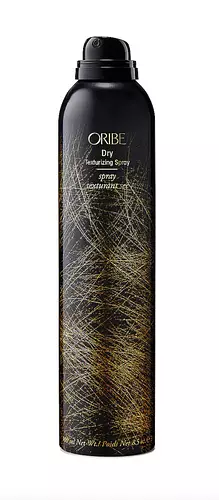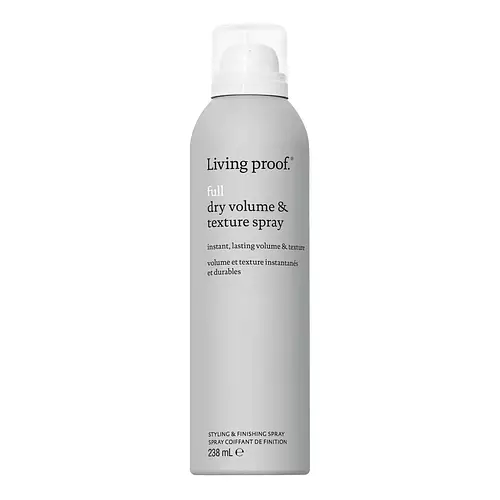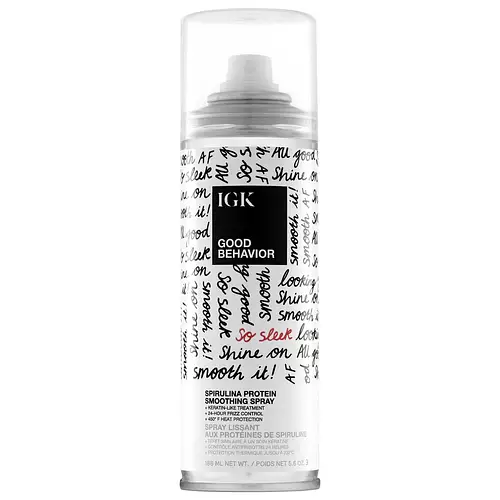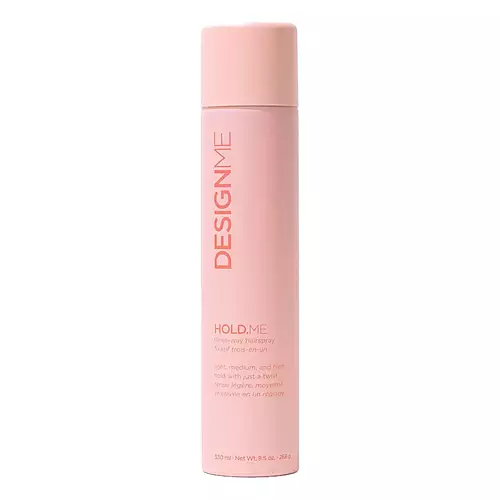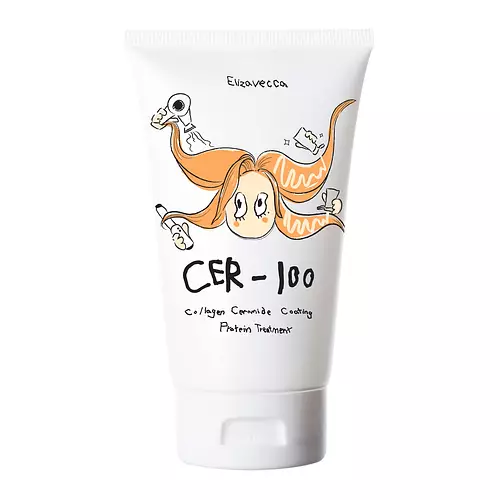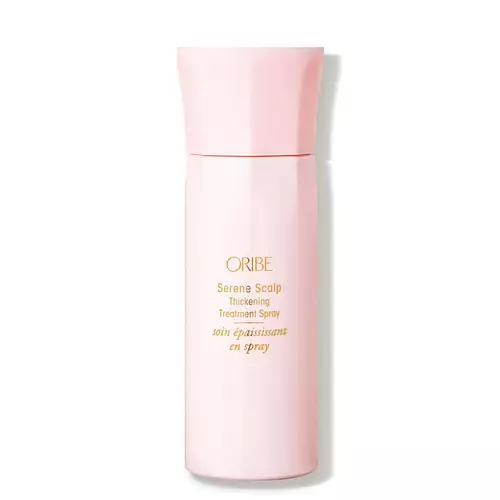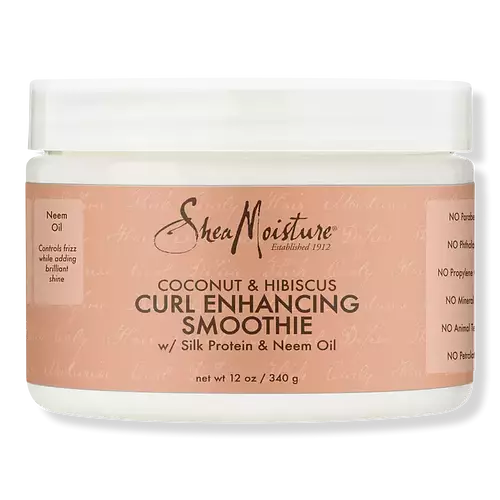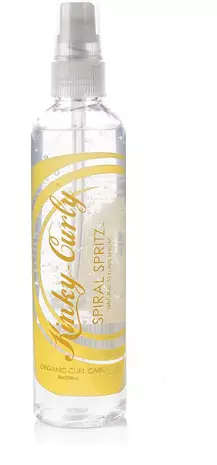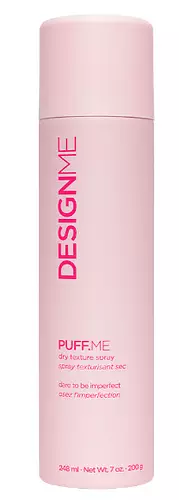
Design Me Puff Me Dry Texture Spray Ingredients Explained
Updated on March 11, 2024 Submitted by wingless_tori
Overview
What it is
Styling creams & spray with 13 ingredients that contains exfoliants
Cool Features
It is vegan, cruelty-free, fungal acne (malassezia) safe, and reef safe
Suited For
It has ingredients that are good for dry skin and brightening skin
Free From
It doesn't contain any common allergens, oils, parabens or sulfates
Fun facts
Design Me is from Canada.
We independently verify ingredients and our claims are backed by peer-reviewed research. Does this product need an update? Let us know.
Styling creams & spray with 13 ingredients that contains exfoliants
Quick info
You should know
Notable Ingredients
This product contains 1 ingredient that may have this attribute:
Benefits
This product contains 1 ingredient that may have this attribute:
This product contains 1 ingredient that may have this attribute:
Concerns
This product contains 1 ingredient that may have this attribute:
This product contains 1 ingredient that may have this attribute:
This product contains 1 ingredient that may have this attribute:
This product contains 3 ingredients that may have this attribute:
This product contains 3 ingredients that may have this attribute:
Ingredients 13
Alcohol Denat. is an alcohol with a denaturant property. It is created by mixing ethanol and other additives. It has a low molecular weight and will evaporate quickly. This helps other ingredients become better absorbed and dry once applied.
Glycerin is already naturally found in your skin. It helps moisturize and protect your skin.
Silica is a mineral naturally found in our skin. It helps to thicken and smooth the texture of a product. It also acts as an agent for other ingredients by increasing the absorption of other ingredients into the skin.
Water. It's the most common cosmetic ingredient of all. You'll usually see it at the top of ingredient lists, meaning that it makes up the largest part of the product.
Butylene Glycol (or BG) is used within cosmetic products for a few different reasons:
Benzophenone-4 is a water-soluble chemical sunscreen.
Parfum is a catch-all term for an ingredient or more that is used to give aroma to products. Parfum, or fragrance, can be a blend of hundreds of chemicals or plant oils. This means every product with "fragrance" or "Parfum" in the ingredients list is a different mixture.
Ingredient Ratings
Based on the number of likes and dislikes each ingredient has received.
Ingredients Explained
We don't have a description for Hydrofluorocarbon 152a.
We don't have a description for Dimethyl Ether.
Alcohol Denat. is an alcohol with a denaturant property. It is created by mixing ethanol and other additives. It has a low molecular weight and will evaporate quickly. This helps other ingredients become better absorbed and dry once applied.
Alcohol Denat. is volatile and may cause irritation. It helps draw out natural oils in skin and dry out your skin.
One study from 2005 found adding emollients to propanol-based sanitizer decreased irritation.
Alcohol is antibacterial by nature. This can help preserve products and increase their shelf life.
Other types of astringent alcohols include:
Learn more about Alcohol Denat.We don't have a description for Vp/Va Copolymer.
We don't have a description for Zeolite.
Triethyl Citrate is a fragrance.
Glycerin is already naturally found in your skin. It helps moisturize and protect your skin.
A study from 2016 found glycerin to be more effective as a humectant than AHAs and hyaluronic acid.
As a humectant, it helps the skin stay hydrated by pulling moisture to your skin. The low molecular weight of glycerin allows it to pull moisture into the deeper layers of your skin.
Hydrated skin improves your skin barrier; Your skin barrier helps protect against irritants and bacteria.
Glycerin has also been found to have antimicrobial and antiviral properties. Due to these properties, glycerin is often used in wound and burn treatments.
In cosmetics, glycerin is usually derived from plants such as soybean or palm. However, it can also be sourced from animals, such as tallow or animal fat.
This ingredient is organic, colorless, odorless, and non-toxic.
Glycerin is the name for this ingredient in American English. British English uses Glycerol/Glycerine.
Learn more about GlycerinSilica is a mineral naturally found in our skin. It helps to thicken and smooth the texture of a product. It also acts as an agent for other ingredients by increasing the absorption of other ingredients into the skin.
Silica is often used for absorption and can help reduce shine when products are applied. Silica occurs in naturally in materials like clay and sandstone, and it can also be produced synthetically.
Silica is present naturally within the skin during collagen production and when reducing inflammation.
Learn more about SilicaWater. It's the most common cosmetic ingredient of all. You'll usually see it at the top of ingredient lists, meaning that it makes up the largest part of the product.
So why is it so popular? Water most often acts as a solvent - this means that it helps dissolve other ingredients into the formulation.
You'll also recognize water as that liquid we all need to stay alive. Talk about multi-purpose! If you see this, drink a glass of water. Stay hydrated!
Learn more about WaterButylene Glycol (or BG) is used within cosmetic products for a few different reasons:
- It is a solvent, meaning that it helps to dissolve other ingredients. This also enhances the absorption of the product into one's skin.
- It is a humectant, which means that it helps attract moisture into the skin.
- It helps improve product application.
Overall, Butylene Glycol is a safe and well-rounded ingredient. It is unlikely to irritate skin, and works well with pretty much all other ingredients.
Peg/Ppg-17/18 Dimethicone is a type of silicone.
Benzophenone-4 is a water-soluble chemical sunscreen.
It protects in the UV-B range, but is considered a secondary UV absorber. This means that it needs to be paired with other sunscreen ingredients to provide effective protection.
Typically, it's used in cosmetic products to protect them from deterioration caused by UV rays. This is why you'll find it in a lot of products that aren't sunscreens.
Learn more about Benzophenone-4Parfum is a catch-all term for an ingredient or more that is used to give aroma to products. Parfum, or fragrance, can be a blend of hundreds of chemicals or plant oils. This means every product with "fragrance" or "Parfum" in the ingredients list is a different mixture.
In the US, the alternative name for parfum is 'fragrance'. The term 'fragrance' is not regulated in many countries. In many cases, it is up to the brand to define this term.
For instance, many brands choose to label themselves as "fragrance-free" because they are not using synthetic fragrances. However, their products may still contain ingredients such as essential oils that are considered a fragrance. One example is Calendula flower extract. Essential oil ingredients still impart a scent or 'fragrance'.
Depending on the blend, it can cause allergies and sensitivities on the skin. Some ingredients that are known EU allergens include linalool and citronellol.
Products use parfum often to give products a scent or cover up smells of different ingredients.
The bottom line is: not all fragrances/parfum/ingredients are created equally. If you are worried about fragrances, we recommend taking a closer look at an ingredient. And of course, we always recommend speaking with a professional.
Learn more about ParfumWhen to use
How this product is used by our community
Directions
Dry hair, then style (or leave au naturel) as desired!
Lift hair in sections, and spray liberally through your mid-lengths & ends, or wherever you're looking to amp up the volume! Spray holding...
Dry hair, then style (or leave au naturel) as desired!
Lift hair in sections, and spray liberally through your mid-lengths & ends, or wherever you're looking to amp up the volume! Spray holding the can about 6-10" inches away.
Compared With
Here are some products that it's often compared with
More Design Me Products
See all Design Me productsMore Styling Creams & Sprays
See all styling creams & spraysWe're dedicated to providing you with the most up-to-date and science-backed ingredient info out there.
The data we've presented on this page has been verified by a member of the SkinSort Team.
Read more about us

